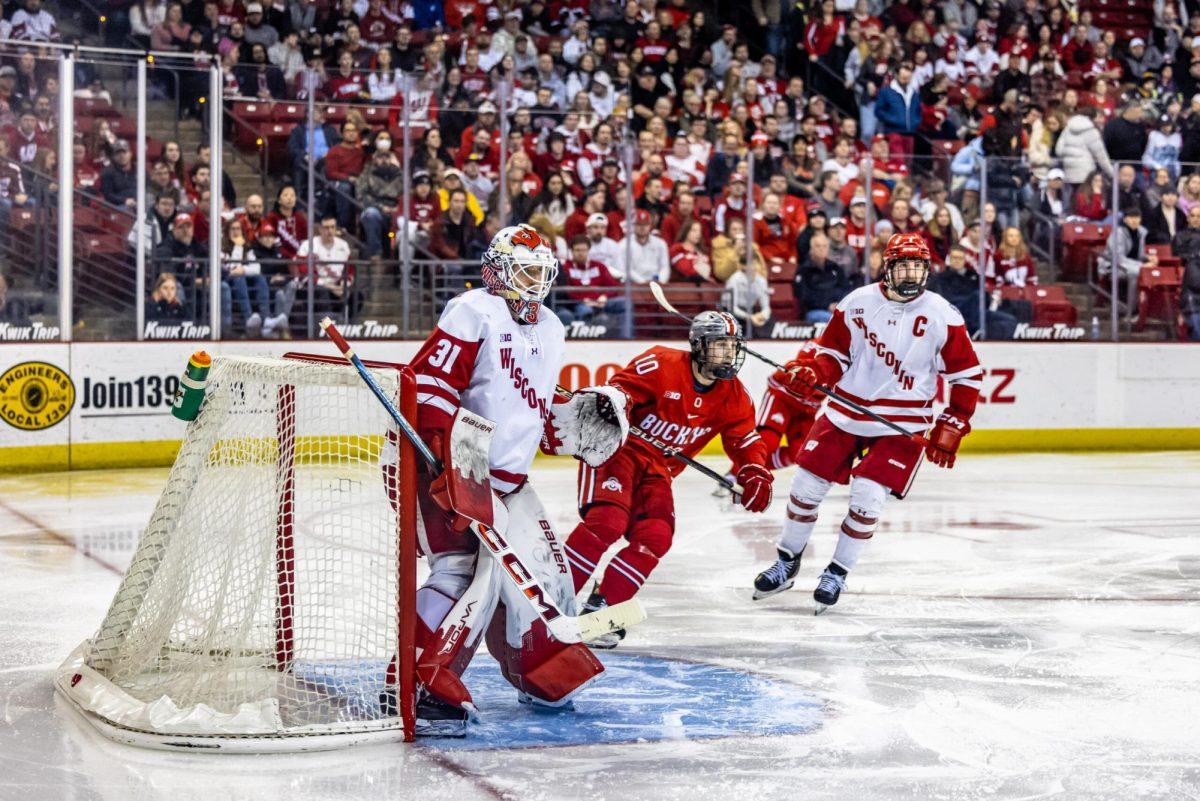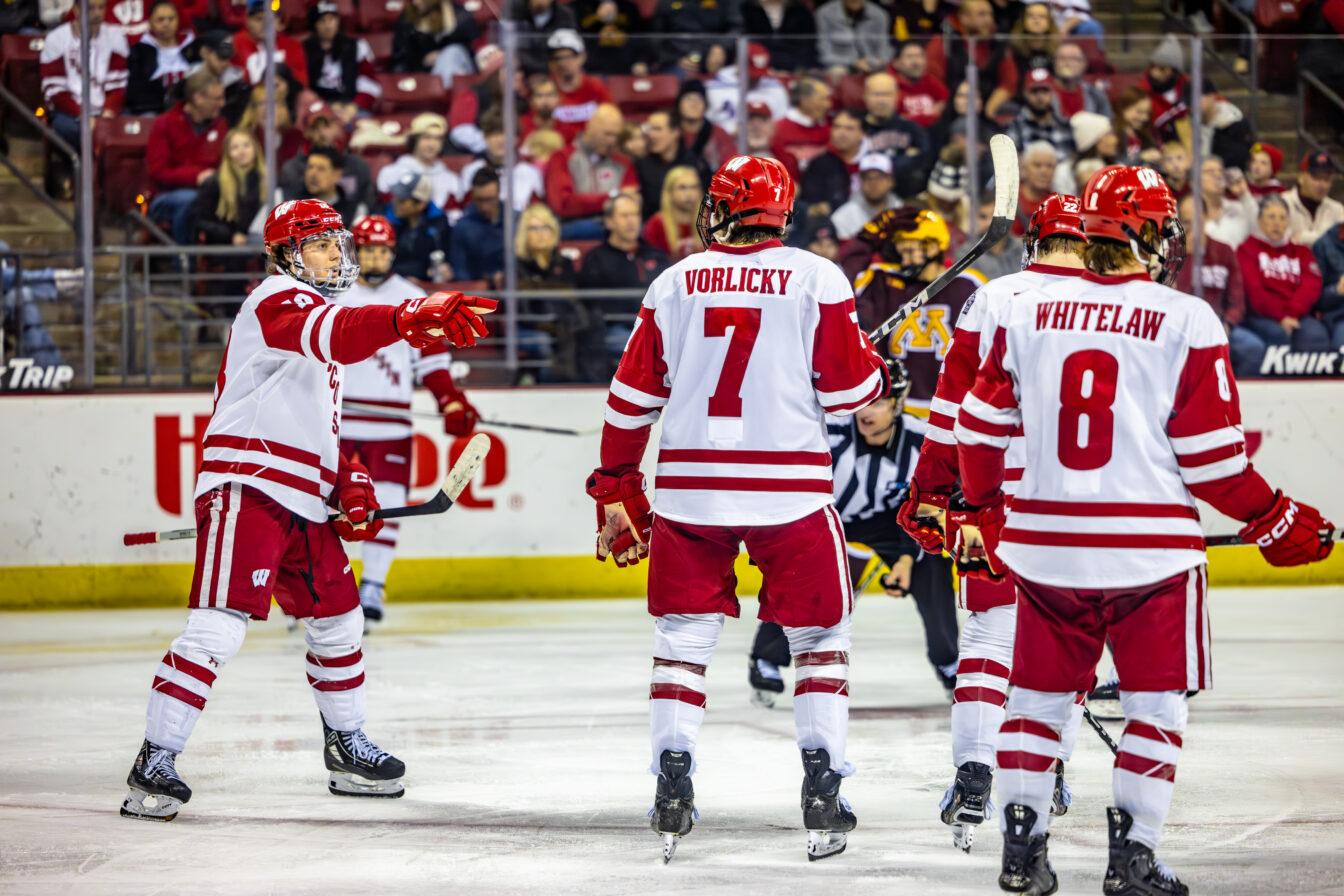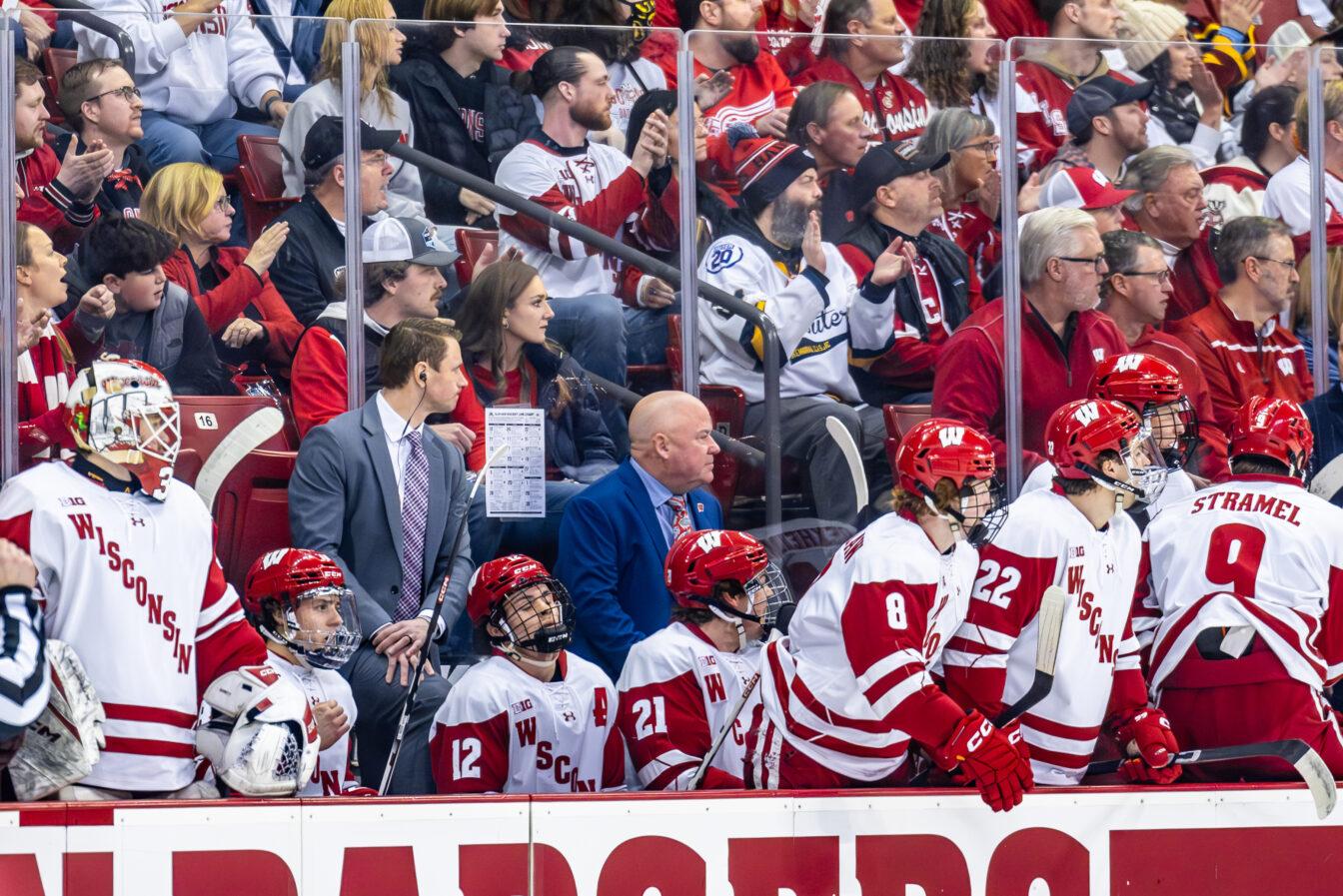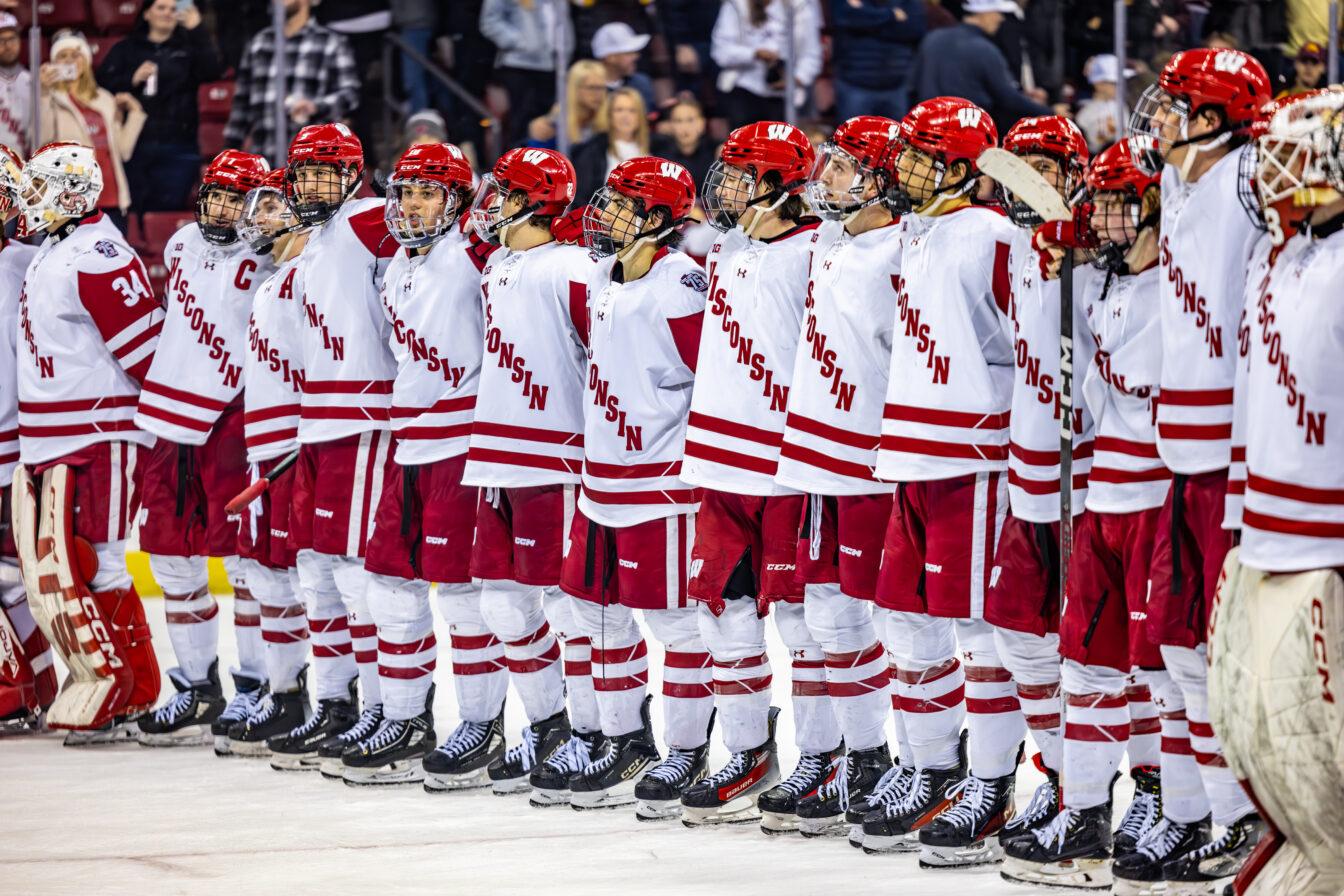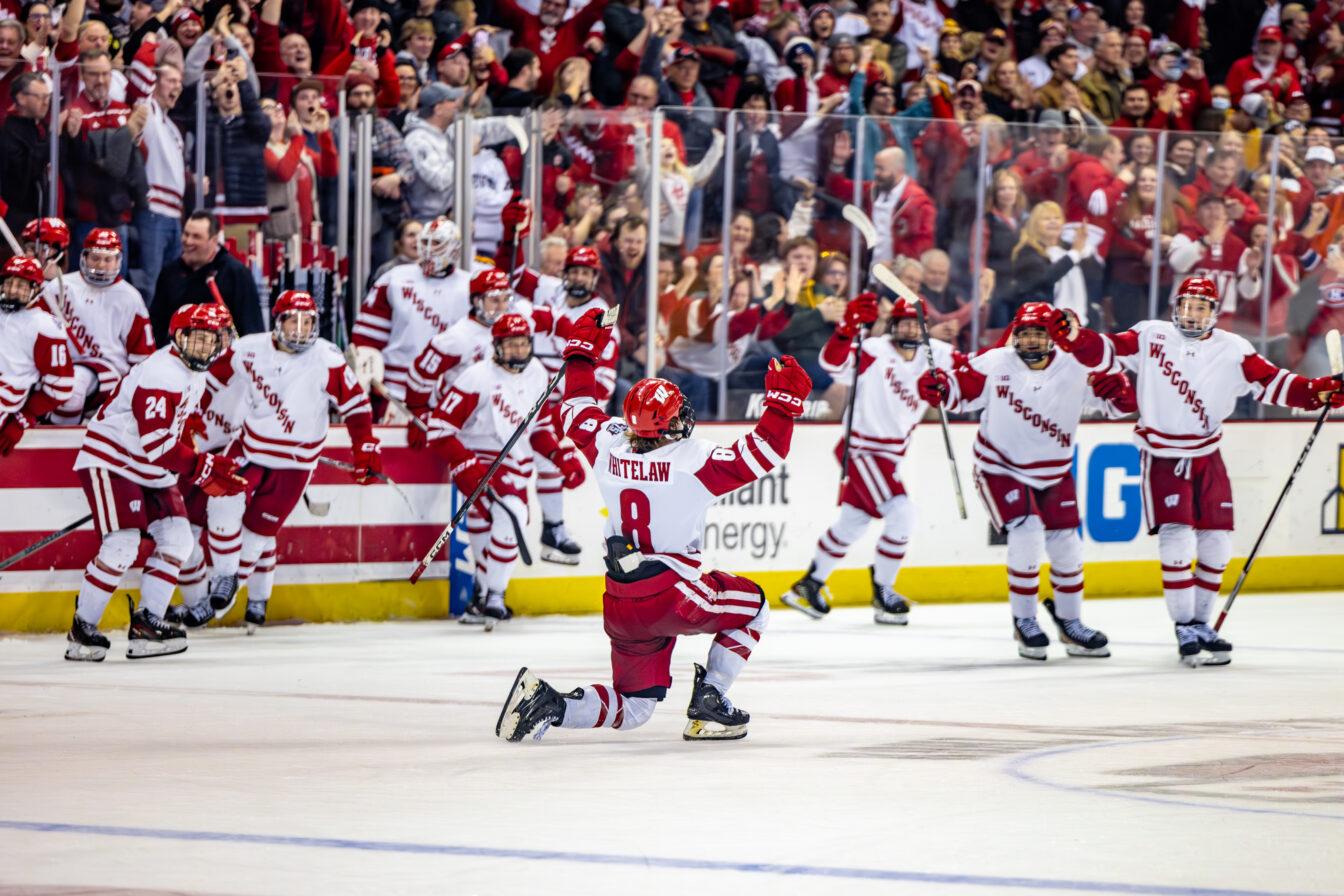
More than anything, hockey head coach Mike Eaves’ objectives and coaching style are most likely a result of his own playing career.
After his triumphs in college, Eaves spent some time playing for the Oklahoma City Stars, a farm team for the Minnesota Stars. He knew he was not the biggest or the fastest forward at the time, but eventually a lucky break – literally – gave him a chance to play in the National Hockey League.
“I wasn’t drafted till the fifth or seventh round, I can’t even remember,” Eaves said. “It’s like, ‘Do I even have a chance?’ if I’m drafted that low. … I was fortunate enough to play well when I was in the minors. Quite honestly, I was fortunate that when I was in the minors, I got a break when Bobby Smith, who was the No. 1 center for the North Stars, broke his ankle and he was out for three months. There are a lot of players in the minor leagues who never get that break. I had that break and when I was there I played well enough to not be sent down. His break was my break, so to speak.”
Eaves earned rookie of the year accolades after his first year in the minors, before playing in only three games with Minnesota at the end of the 1978-79 season. He would play 12 more games with Oklahoma City the following season before finally making a permanent transition to the big leagues. From 1979-1986, Eaves enjoyed a brief yet strong career, first with Minnesota until 1983 before finishing his NHL career with the Calgary Flames. During that brief seven-year stretch the former Badger notched 83 goals and 143 assists for a total of 226 career points. It should be noted that Eaves did not play in the 1985-86 season until the playoffs, when the Flames were in need of additional support at forward after suffering a key injury.
But his condensed career was a result of an onslaught of concussions. While Eaves has no physically noticeable scar, his hockey injuries were repeated hits to the head that put an end to his career. It is an injury that still causes concern today not only in hockey, but also in football and other contact sports.
“It’s such a spotlighted injury,” Eaves said. “There’s a great concern about head injuries and concussions. My problem was I would come back too early from a concussion. In the old days it was get some smelling salts, shake your head, take a couple aspirins and play. The problem was I was coming back to soon and getting hit again.”
In an exhibition game against Quebec City, Eaves remembers the final concussion that finally put an end to his career. The risk of taking another tough blow to the head just wasn’t worth the potential consequences.
“I had had two concussions that spring, but I had the summer. I went back to the bench and all of sudden I went back on the ice and I had that feeling of d?j? vu, that dream state. And I was like, ‘This is not right.’ … The doctor said I didn’t have any permanent damage … but it was like the next time you get hit, because of your history, I can’t guarantee that you might not have something permanent happen to you. I was 28 years old, I had two kids, but it was that inner voice saying there’s something not right here. I went with that and said I’m going to call it quits.”
Now, as a coach, Eaves doesn’t treat any injury lightly, especially ones concerning concussions. Not solely due to his own experience, but also from all the research concerning concussions that has developed in recent years, Eaves simply will not let a player back on the ice until they pass all the necessary steps and procedures in recovering from a concussion, no matter the toll it takes on his team.
Plagued with youth last season, the Badgers needed all the upperclassmen leadership they could afford. Unfortunately, one of their most experienced forwards, junior Derek Lee, not only suffered a hand injury, but also suffered a concussion, which caused him to miss the majority of the season.
“I think it helped big time with me because he didn’t want me to rush back because he knew consequences of it,” Lee said. “He was very respectful, making sure that I was ready to come back. He didn’t want me to come back unless I was 100 percent because, like I said, he knows the ins and outs of the consequences of concussions are. Having him tack onto that sort of same thing in his career is sort of beneficial to me and some of the other guys.”
Despite his current struggles between injuries and early departures, through 10 years, Eaves has coached 19 players on to the NHL. He also helped coached three more players that were already on the roster when he first came to UW. Of the 24 players currently playing in the NHL, Eaves has had some sort of influence on 22 of them.
But Eaves is the type of coach to leave his mark. He has had players come back and thank him for his work and even his current players have plenty of respect for him.
“He has a passion for the game that I’ve never really seen from anyone,” junior defenseman Justin Schultz said. “He loves being around the rink. He’s always looking for new ways to make our team better and make us be better as individuals. It’s just fun to be a part of.”
Lee also reiterated the idea that Eaves influences his players on a personal level and does not just make them better players, but better people.
“I think off the ice is the bigger thing,” Lee said. “That’s the one thing that people don’t know. All they see is him coaching us on TV. He makes young guys that are coming in at 18 years old that are still out of high school that are not men yet, he kind of shapes us into men and teaches a lot of life lessons too. I know my freshman year I had some ups and downs right at the beginning and he sat me down and let me know and got me through things. He’s second to none in that aspect.”
A potential return to the NHL
With all that Eaves has accomplished through his playing and coaching career, he has often been cited as a potential NHL coach. Every year there seems to be rumors floating around about whether he will make the jump during that respective offseason.
But, sitting back in his leather chair with a motion W embroidered on the head rest, rocking back and forth, with the new LaBahn Arena taking shape right out his office window, Eaves likes where he is right now.
“There really isn’t a great allure at this time,” Eaves said about the NHL. “I’ve had opportunities earlier in the career and for one reason or another it didn’t work out. I don’t go searching for it. … I am not looking at all for that. What we do here is pretty special anyways.”



